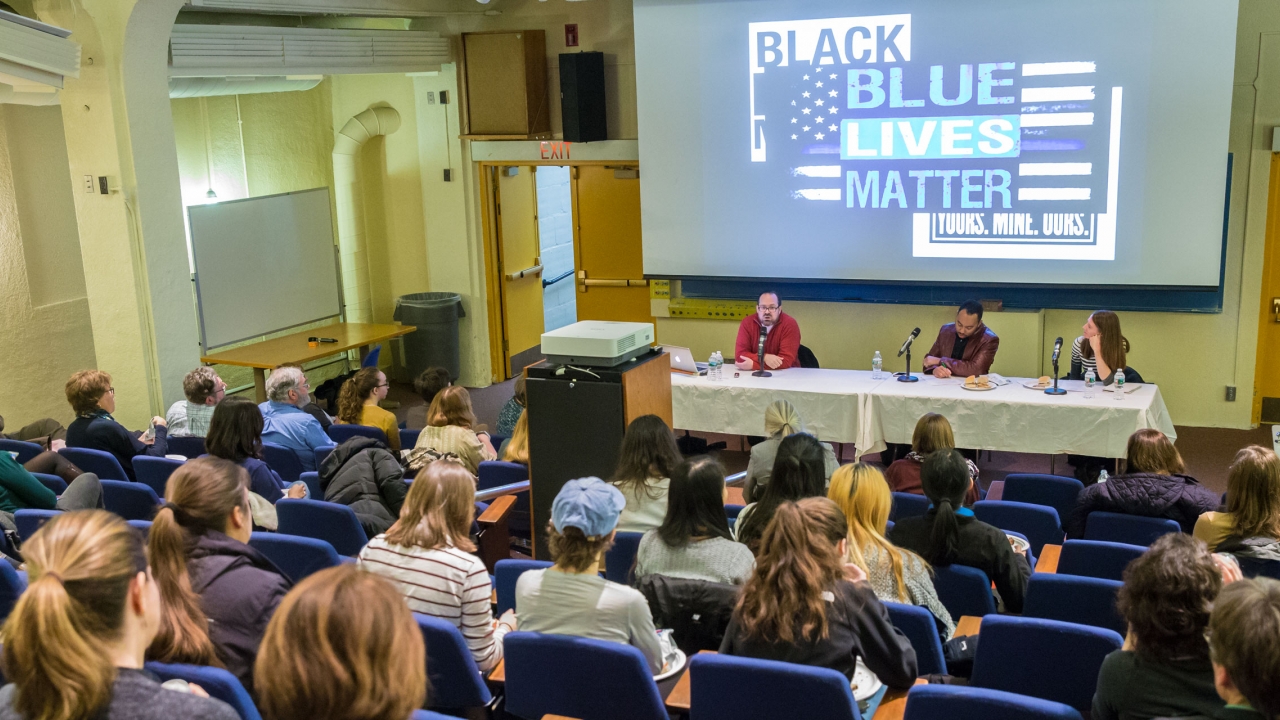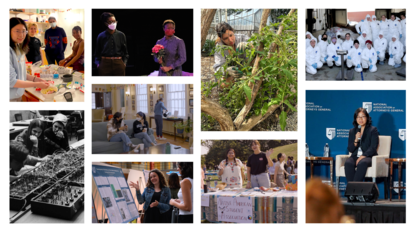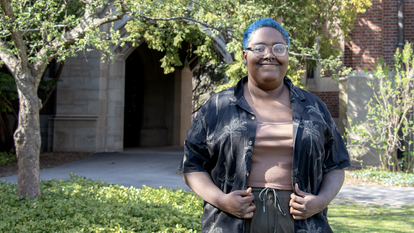Wellesley Faculty Engages Community in Discussions on Immigration and Politics

Continuing the teach-in series on campus that began last fall, two recent teach-ins focused on pressing societal issues—the “politics of hate,” as well as the quickly changing U.S. immigration policy. On February 22, faculty presented “How Can the Interdisciplinary Classroom Help Us Resist the Politics of Hate?” with professors of religion, writing, and English approaching the topic from their own vantage points. On February 28, faculty and staff presented “Conversations on the Muslim Ban,” organized by the student group Al-Muslimat, which examined President Donald Trump’s executive order and “the realities of today’s world, and understanding ‘how we got here,’” according to organizers. The Office of the Provost sponsored both teach-ins.
At the February 22 teach-in, Edward Silver, assistant professor of religion, gave a presentation on “Language, Politics, or How Words Do the Work of White Supremacy.” Silver said “language has been polluted with double-speak,” and he explained how talking around an issue with vague language allows the speaker to seize and assert power without acknowledging what s/he is actually talking about. He said effective communication requires addressing topics that may be difficult to discuss openly, and that faculty and students should accept the associated risks as essential. “You are prepared for noxious elements when you enter a chemistry class. It’s part of the study,” he said. “We have to apply that same principle to the liberal arts.”
Erin Royston Battat, visiting lecturer in the Writing Program, spoke about how to encourage multiple viewpoints in the classroom. She said that to foster a classroom environment where multiple points of view are expressed, she challenges students to develop a question, or “provocation,” that will elicit multiple responses. She teaches that examining the motivation behind an opinion is as important as examining the opinion itself. “We need to understand the thinking behind what shapes the views of the people who disagree with us,” she said. “In writing, we ask students to state a thesis and back it up. In conversing, we ask [them] to consider multiple possibilities.”
Cord Whitaker, assistant professor of English, gave a presentation titled “Interdisciplinarity and the Politics of Hate—or, Race in Motorcycles.” Whitaker addressed how race and ethnicity are reflected in storytelling. He said interdisciplinary study can help make sense of a world in which many issues refuse to fit neatly into any single category. Whitaker offered an analogy to explain this: “Water takes the shape of its container,” he said. “Interdisciplinary pedagogy makes a pretty good riverbank.”
The student group Al-Muslimat organized the February 28 teach-in, “Conversations on the Muslim Ban.” Lidwien Kapteijns, Elizabeth Kimball Kendall and Elisabeth Hodder Professor of History, gave a talk entitled “Who Should Fear Whose Terror?” Kapteijns asked the audience to think of President Trump’s initial executive order on immigration from the perspective of Muslims in the Middle East. She offered what she argued were troubling examples of the history of U.S. foreign policy in the Middle East over the last 50 to 60 years, asking, “Who has more right to feel terrorized, Muslim Middle Easterners fearing the U.S. or the U.S. fearing Middle Eastern Muslims?”
Kapteijns said individuals must stand up against any form of a “Muslim ban,” but that just doing so wasn’t enough. She said individuals and groups can build more meaningful alliances if we “engage and take seriously the nonviolent political views of Muslims in all their diversity.”
Joseph Joyce, M. Margaret Ball Professor of International Relations and professor of economics, whose talk was titled “Make America Great(er): Increase Immigration,” spoke about the contributions of immigrants to our economy. He gave three specific examples: They lower the age of our workforce; they have been an important factor in technology development; and, by adding to diversity in the United States, they enhance workplace productivity as well as enrich the educational experience of students. (Joyce told the audience that his title was a nod to a New York Times article of the same name.)
The student organizers from Al-Muslimat noted that all the speakers, including Wellesley’s Muslim chaplain Amira Quraishi, emphasized that the actions taken by the current U.S. administration are affecting not just Muslims, but other groups and individuals as well.
Late yesterday afternoon, March 8, faculty members from the political science department participated in discussion entitled “How Has the Immigrant Experience Shaped Professors’ Lives?” Speakers were Kathy Moon, Edith Stix Wasserman Professor of Asian Studies and professor of political science; Marion Just, professor of political science; and Igor Logvinenko, assistant professor of political science.



